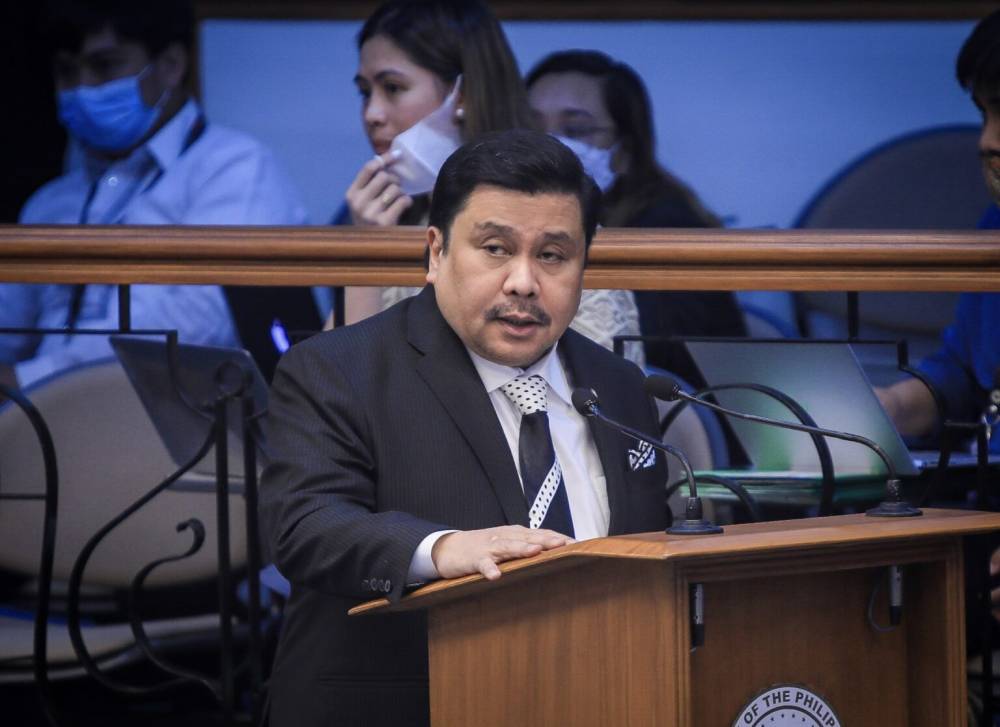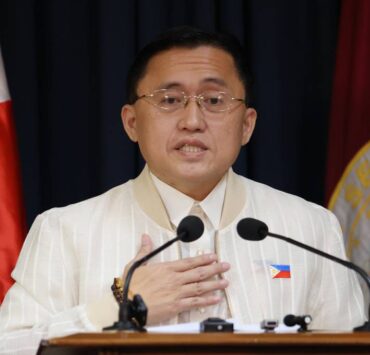Jinggoy faces graft, plunder raps separately

The Supreme Court has given the go-signal to continue the trial of Sen. Jinggoy Estrada’s remaining graft cases in relation to the pork barrel scam after it affirmed that violations of the antigraft law may be prosecuted separately from plunder.
The high court’s Office of the Spokesperson said in a briefer on Wednesday that the Supreme Court en banc dismissed Estrada’s petition challenging his graft cases in connection with the Priority Development Assistance Fund (PDAF) scam.
The senator argued that graft charges under Section 3(e) of Republic Act No. 3019 were “deemed absorbed” by his plunder charges under Republic Act No. 7080 (Anti-Plunder Law).
But the high tribunal rejected the argument, saying absorption principle, where one offense merges into another, does not apply between graft and plunder, “except in rare cases where the same public officer is both the giver and recipient of the unwarranted benefit.”
A full copy of the ruling has yet to be made public.
In a decision handed down on Jan. 19, 2024, the Sandiganbayan convicted Estrada of direct and indirect bribery for pocketing P6.7 million in pork barrel kickbacks.
However, the antigraft court acquitted him and businesswoman Janet Lim-Napoles of plunder involving P183 million of his PDAF due to lack of sufficient evidence.
Other cases
Aside from that plunder charge, Estrada and Napoles were indicted for 11 counts of violation of Section 3(e) of Republic Act No. 3019, the Anti-Graft and Corrupt Practices Act, in a case that involved the fund release of about P255 million that came from Estrada’s PDAF and coursed through different foundations, as reflected in disbursement vouchers.
According to the Supreme Court, the component act of “giving any private party any unwarranted benefit, advantage or preference” under the antigraft law cannot be absorbed by the predicate criminal acts under the antiplunder law because the two offenses punish distinct wrongs.
“Under Republic Act No. 3019, the benefit or advantage is given to a private individual separate from the public officer,” it explained.
On the other hand, the Supreme Court said under RA 7080, it is the public officer himself who directly benefits by receiving kickbacks or unjustly enriching himself through a combination or series of overt acts.
“The only exception to this rule is when the Information alleging a violation of Section 3(e) of Republic Act No. 3019 names the same public officer, acting in a private capacity, as the beneficiary of the unwarranted benefit, advantage or preference. This is so because the primary beneficiary of both plunder and graft now pertains to only one and the same person,” it added.

















